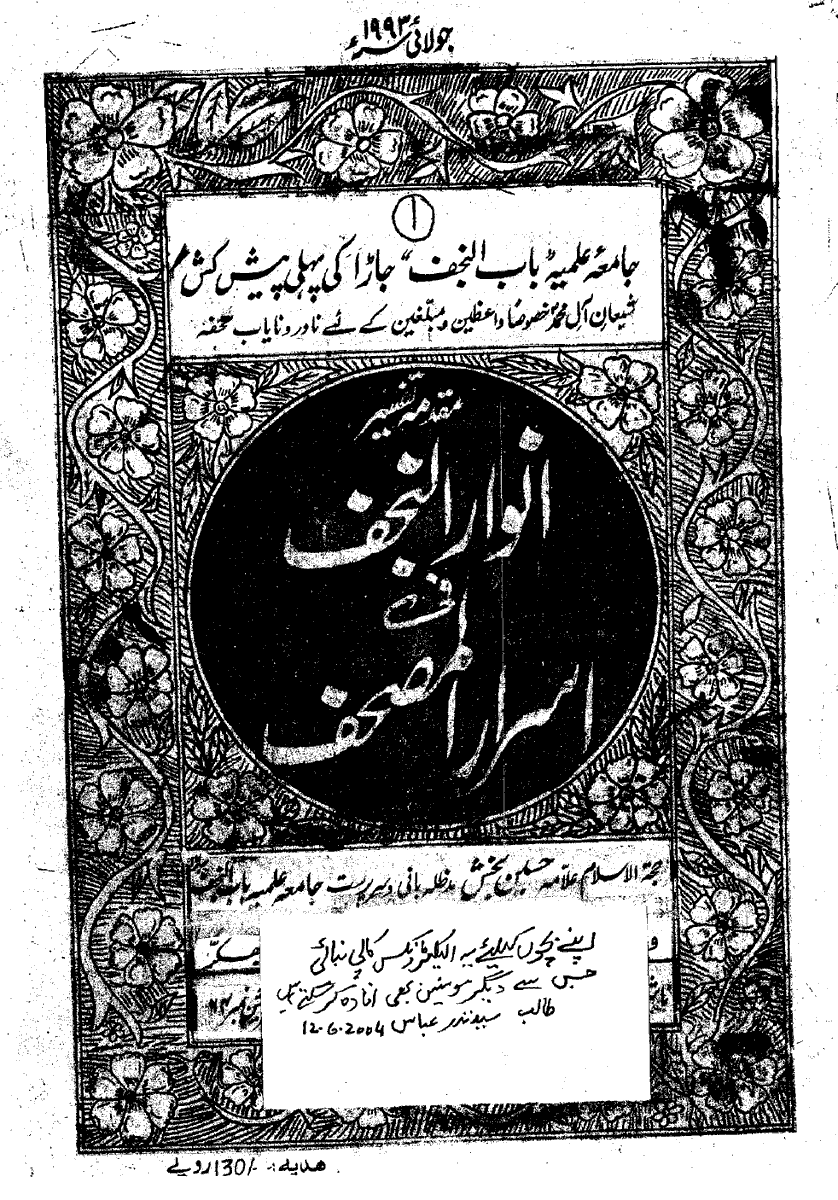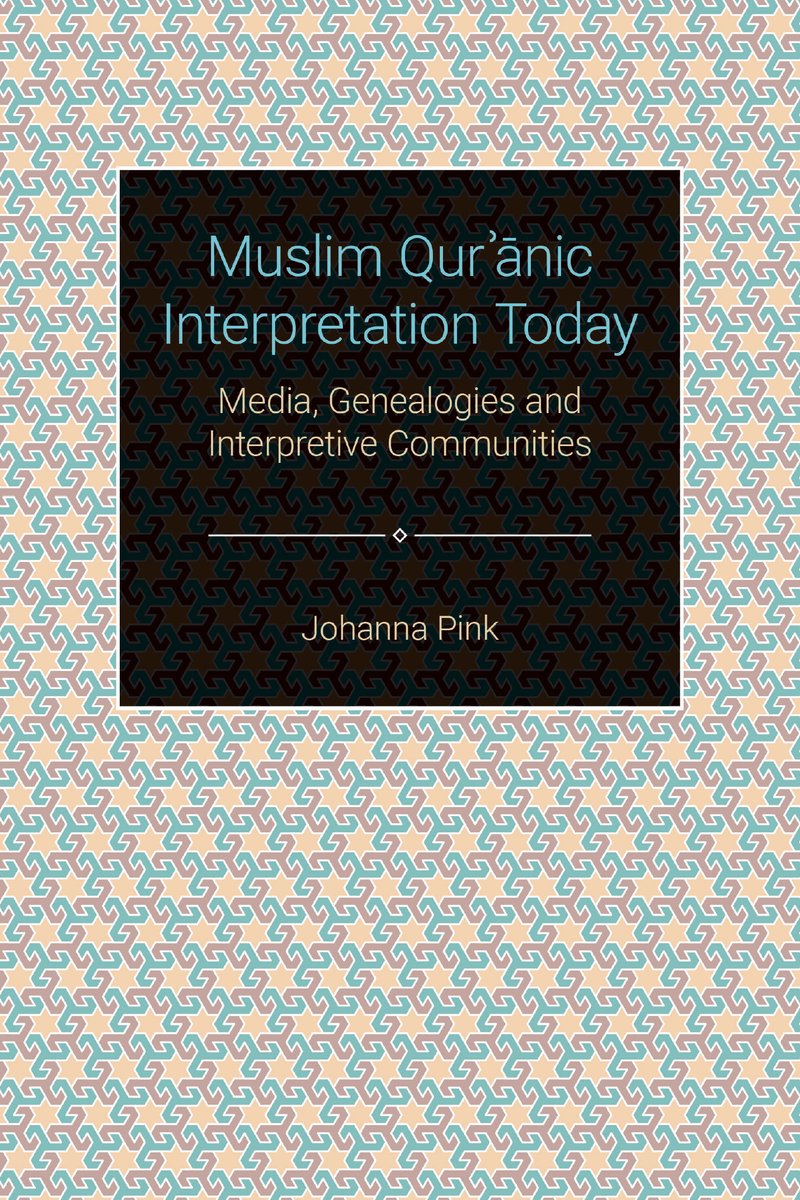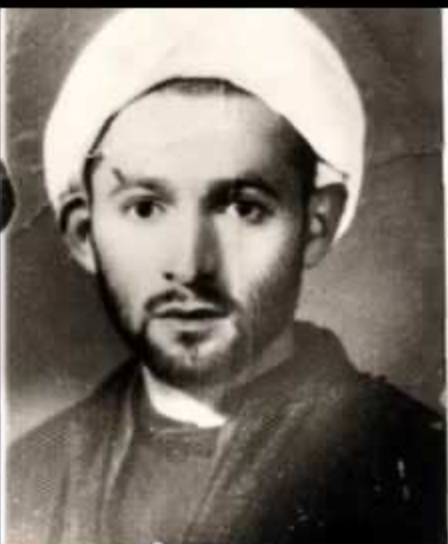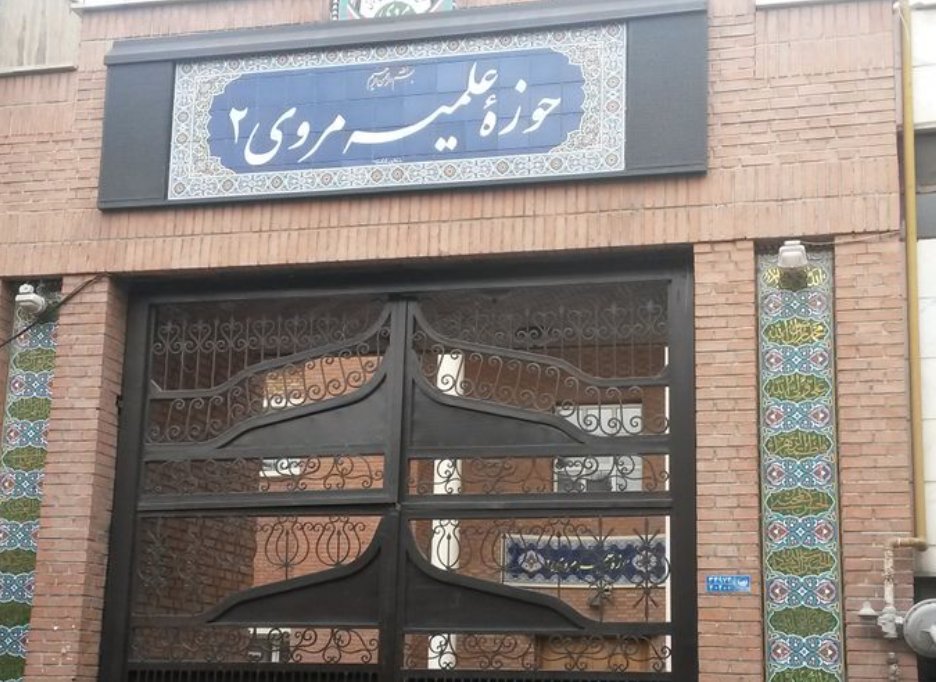Something went wrong with the thread on #Qurʾan #exegesis in #Urdu so let me try to reconstruct the remaining tweets 9/
First I want to mention perhaps the earliest proper #Shii exegesis was ʿUmdat al-bayān of Maulvī ʿAmmār ʿAlī (1828-1889) who has studied in Lucknow with Mumtāz al-ʿulamāʾ Sayyid Muḥammad Ibrāhīm (1819-1972) and later taught in Lahore and Delhi - I haven't located a copy 10/
From the 1970s we have the rather literary exegesis of the prolific Sayyid Ẓafar Ḥasan Amrohī (d. 1989) who worked extensively in India before moving to Pakistan in 1950 11/ 

We then have the scholarly and extensive Anwār al-Najaf of Ḥusayn Bakhsh Jārā that appeared in 15 volumes in 1993 12/ 

But from a #Shii perspective the most important work is Faṣl al-khiṭāb of Sayyid ʿAlī Naqī Naqvī (Naqqan sāḥib) (1905-1988) completed in 1986, first published in Kashmir in the 1980s and then from the 1990s in 7 or 3 volumes 13/ 



I should also mention the prominent #Deobandi Tafsīr-e ʿUsmānī based on the teaching of Sayyid Maḥmūd al-Ḥasan (1851-1920) and initiated by Shabbīr Aḥmad ʿUsmānī (1887-1949) and continued by others - in 3 volumes 14/ 

and finally a more recent #Shii work al-Kawthar by Muḥsin ʿAlī Najafī (b. 1938) in 10 volumes in 2014 15/ 

I am aware that I have broadly neglected #Barelvī exegesis - but there is a huge amount online in audio and video and of course there is radio and TV 16/
Nevertheless, while the corpus of #Urdu exegesis is far greater than I can indicate here research on it is essential 17/
Not only does exegesis tell you about the work and training and concerns of the exegete, it tells us much about the encounter with #modernity the #present and its concerns 18/
a small addendum - for those interested in the phenomenon of modern #exegesis check out Johanna Pink's new book - it deals with what is beyond the written and thematically v strong 

This was published by Maṭbaʿ-ye Yūsufī in Delhi in 1889 and there is a copy in the #BritishLibrary 10a/
I also found two volumes on archive
• • •
Missing some Tweet in this thread? You can try to
force a refresh

















